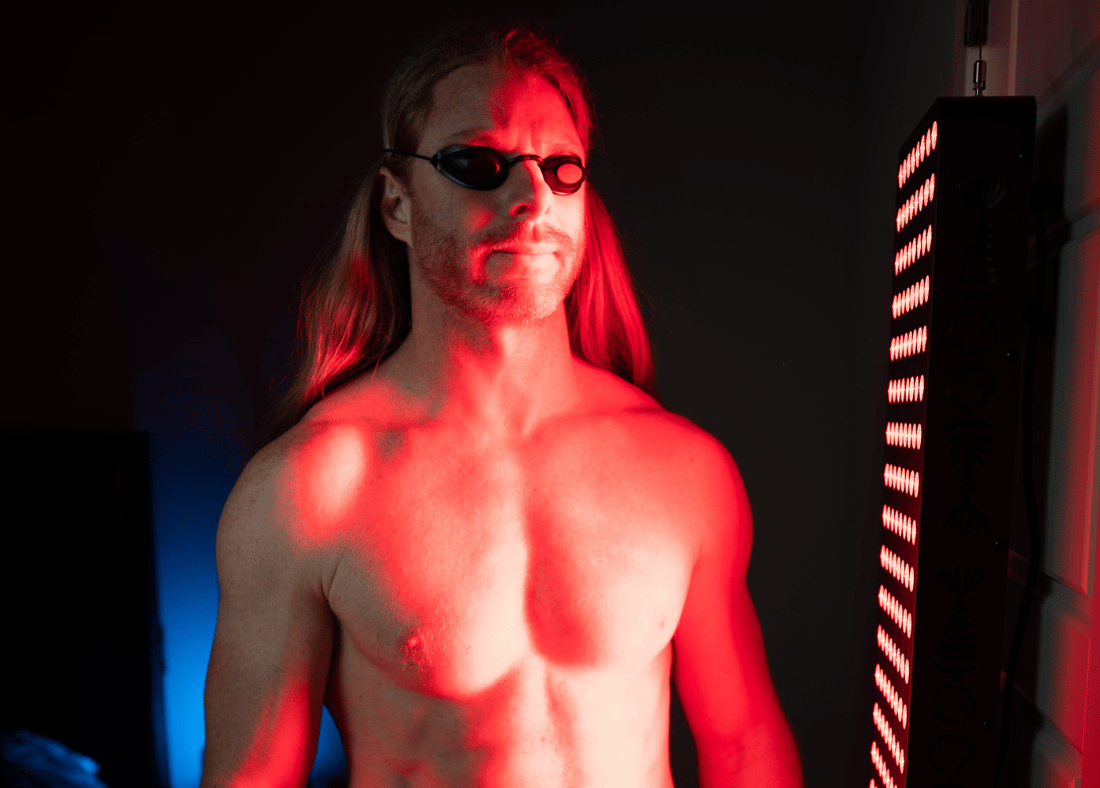Can You Do Red Light Therapy Every Day?
Andy Mant
Red light therapy is a treatment that makes use of low-wavelength red light to purportedly improve the appearance of one's skin. This includes lowering the appearance of acne scars, wrinkles, and redness. It is also promoted as a treatment for a variety of other things, such as wound healing, skin conditions, and joint pain.
A lot of research is being done on red light therapy right now, and thousands of studies have been published. There is also a lot of talk about it on the internet.
How does red light therapy work?
Red and near infrared light therapy, sometimes known as low level laser therapy LLLT or level laser light therapy, is believed to work on a cellular level, by acting on the cells in your body called mitochondria.
Other cells are able to do their tasks, such as repairing the skin, increasing the creation of new cells, and enhancing the renewal of the skin, more effectively when they have access to more energy, and the mitochondria provide this energy - they are triggered to work when they have absorbed light wavelengths
Benefits of red light therapy
There are a great number of advantages to red light therapy, however, the following are some of the more important ones:
- It has a beneficial effect on blood flow. Our blood vessels expand as a normal reaction to heat, which is the same thing that happens when you are exposed to red light. Red light also causes this effect. Exposure to red light improves blood circulation, which in turn results in the more effective delivery of oxygen to tissues throughout the body.
- As a result of the increased blood flow, it has an anti-inflammatory effect.
- Due in large part to the effects described above, it relaxes tight muscles and lessens the intensity of pain.
- It helps clear up acne. If you have problems with acne, you may notice a significant improvement because of the decreased inflammation and improved blood flow.
- Some people even believe that it aids in the process of losing weight. Obviously, a healthy diet and regular exercise are required in addition to the LED treatment to achieve the desired results.
- It is possible to use it for cosmetic purposes, the treatment of wrinkles, hair growth or the treatment of stretch marks.
Even though additional study is required to better understand this therapy and determine the extent of the benefits, several studies have demonstrated that it has a positive impact on the human body.
Is infrared light therapy safe?
The answer to this question is yes; red light therapy is safe. Two possible side effects of a red-light therapy session are eye strain and headaches. However, most people only feel a little bit of discomfort from these side effects, and they usually go away quickly. If you have sensitive skin, you can also notice redness, which is quite normal and should not provide you with any cause for alarm.
Because an infrared light treatment is non-invasive and doesn't hurt, there is no need to rest afterward. After using red light therapy devices, you can immediately resume your normal daily activities.
It should be brought to your attention that there have been cases of people getting burned after falling asleep with the lights on after using red light therapy products. If you are exposed to the diodes in the light therapy panels for an extended period, you run the risk of experiencing burns or eye strain. It is a good idea to stick to around 30 minutes at a time and to wear protective goggles.
You should not have any problems unless you deliberately break the machine.
How often can you do red light therapy?
It is recommended that red light treatment be used anywhere from three to five times per week. However, the number of times you should use LED light therapy each day may likely change according to the treatment you require. While some people require numerous sessions of red-light treatment per day, others may only require one session per week to achieve the same results.
The simplest guidance that anyone can provide you regarding this matter is to talk to your doctor about it, as doctors are qualified health specialists who understand your individual health requirements better than anyone else. They might also recommend a conventional treatment in addition to the LLLT, and they might set up check-up appointments to make sure that everything is proceeding according to plan.
One important point to keep in mind is that you should avoid using red light therapy excessively if clearing up acne and achieving reduced inflammation of the skin are among your goals. This is because red light therapy works on the glands that make lubricant and sebum, both of which are important for maintaining your skin's moisture balance. When receiving LED light therapy, it is important to keep in mind that dry skin might cause breakouts.
Enjoy the benefits of red light therapy
As was stated earlier, there is no discomfort associated with the red light therapy treatment, and the risks are minimal to non-existent. There does not appear to be a frequency limit for red light treatment; in other words, you cannot have too much of a good thing when it comes to red light therapy. This is especially true if your goals are to reduce pain, increase blood flow, or obtain any of the other benefits described earlier. BON CHARGE full body read light panels are a great start on your red-light therapy journey.



